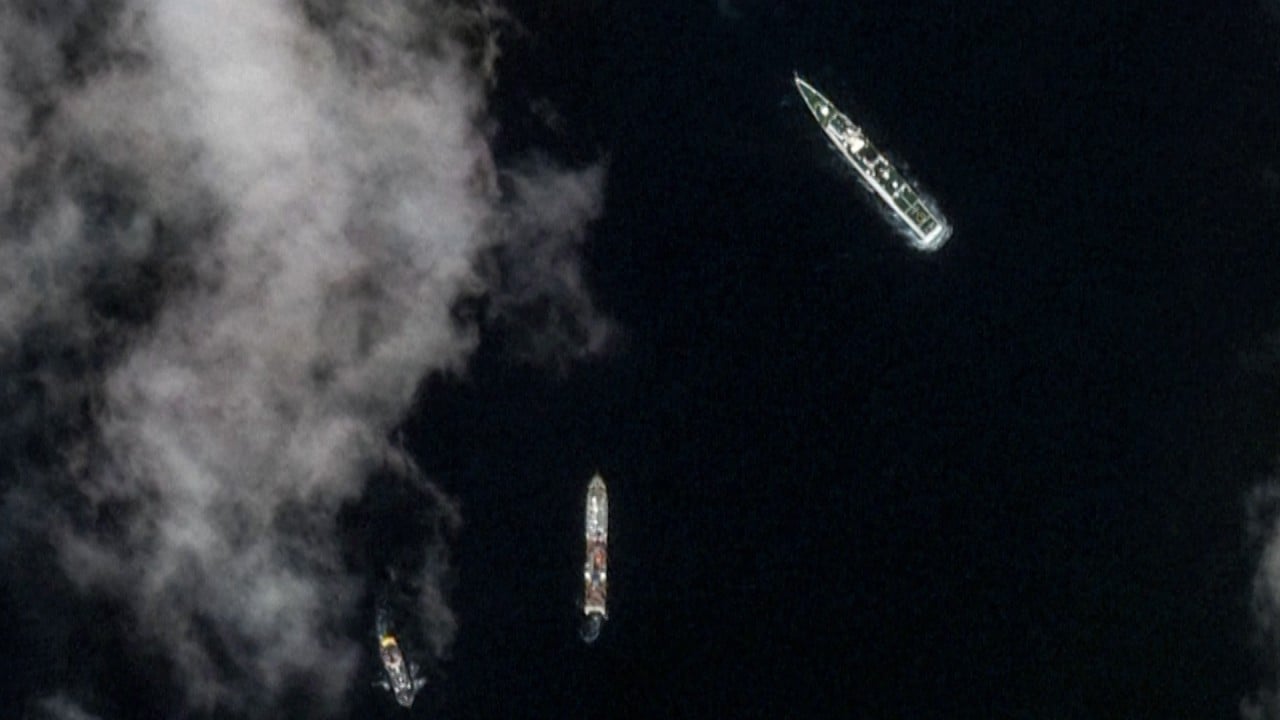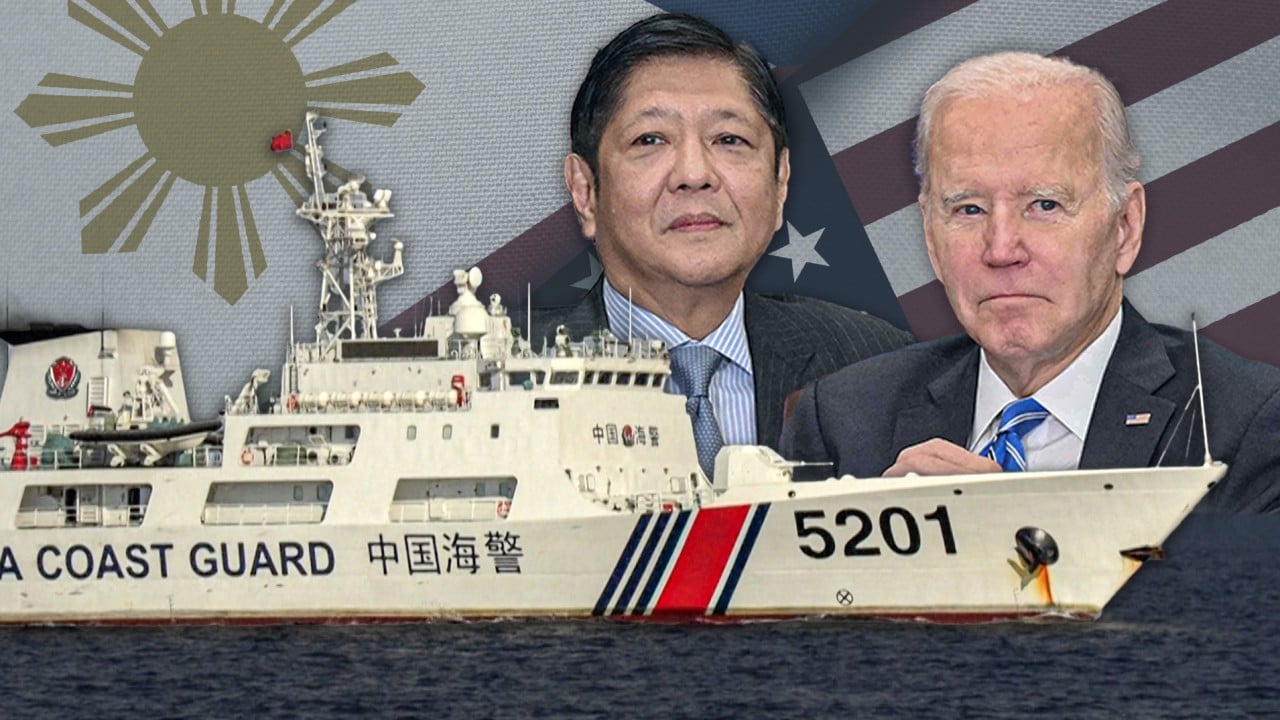
South China Sea: Beijing hits back at Philippine envoy over economic coercion claims
- Stop reckless speculation and spreading the China threat theory, Chinese embassy says
- Jose Manuel Romualdez had warned that Philippine exports to China could be in danger as maritime tensions rise
In a Chinese-language statement on Sunday, the Chinese embassy in the Philippines also accused Jose Manuel Romualdez, the Philippine ambassador to the United States, of “disregarding basic facts, recklessly speculating on the South China Sea issue, and engaging in empty speculation and malicious smearing of China”.
The Philippines should stop “drawing wolves into the house and forming a ‘clique’”, which it said “would never help resolve the South China Sea disputes”.
“On the contrary, it will only complicate the situation in the region, jeopardise regional peace and stability, and undermine its own security,” the embassy said.
“We strongly advise the people concerned to stop spreading the ‘China threat theory’, to refrain from spreading ‘persecution paranoia’ … and to do more for the benefit of their own people and the friendship between China and the Philippines.”
The statement was in response to Romualdez’s assessment that his country’s agricultural exports to China could be “in peril” as maritime tensions with China grew.
“These are things that are being used by them for economic coercion. That’s always [on] the table. That’s why we’re working double time in trying to look for other markets just in case,” he said, according to The Manila Times.
He also said in an earlier interview with Reuters that his country was in talks to include Australia and Japan – also US allies – in planned joint South China Sea patrols with the US.
Marcos says Philippines will not cede ‘one square inch’ of territory
In a departure from his Beijing-friendly predecessor Rodrigo Duterte, President Ferdinand Marcos Jnr, who took office in June 2022, has moved closer to the United States – a traditional ally – to counter China’s maritime assertiveness in the South China Sea.
Amid the tensions, China remains the Philippines’ top trading partner and the third-largest market for Philippine agricultural products such as bananas, pineapples, coconuts, and avocados.
China is also a major source of foreign investment in the Philippines, with stakes in logistics, agriculture and telecommunications.
The Macros administration is floating the idea of amending the country’s constitution to attract more investment, including from the US.
During the event in Manila, Romualdez said the US was “going out of its way” to expand economic relations with the Philippines.
As part of efforts to boost economic engagement and boost investment particularly in infrastructure, manufacturing and energy sectors, US Commerce Secretary Gina Raimondo is expected to visit Manila next month.



